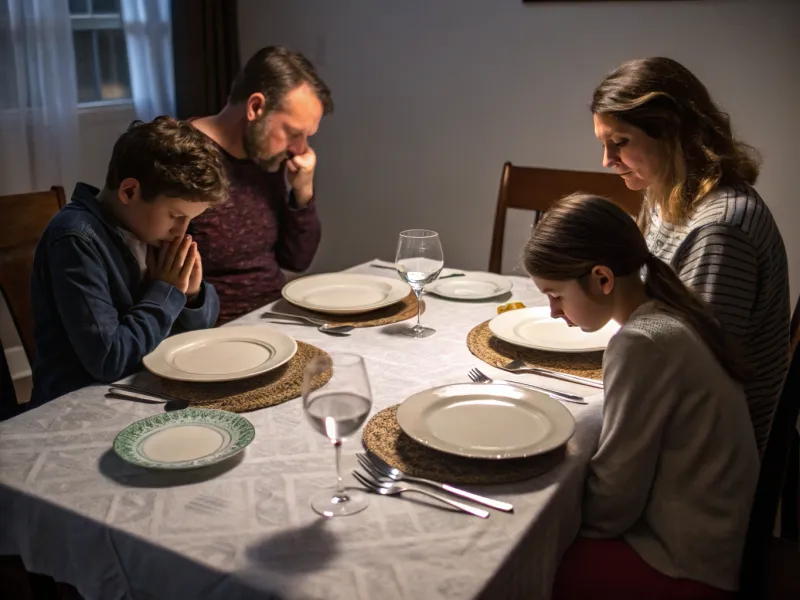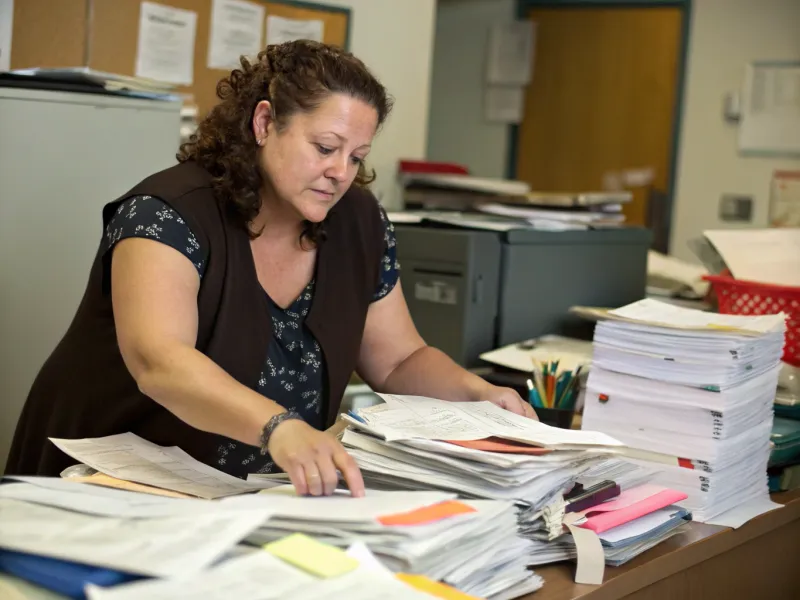30 Red Flags That Indicate You Grew Up in a Dysfunctional Family

Sometimes it’s not obvious—especially when dysfunction was your “normal.” You grow up thinking love looks like silence, guilt, control, or chaos… until adulthood starts revealing the cracks in your foundation.
Dysfunction isn’t always loud. Sometimes it shows up in what wasn’t said. What wasn’t allowed. What never got repaired. If you’ve ever asked yourself, “Why do I struggle with things other people seem to handle easily?” — this list is for you.
Here are 30 red flags that you may have grown up in a dysfunctional family—not to blame, but to help you recognize, release, and rebuild.
1. You struggle to name or express your emotions.

Because feelings weren’t safe—or simply never discussed. Growing up, emotions were like a forbidden language. Even if you wanted to, you couldn’t find the words to describe what you felt. It was as if your emotional vocabulary was locked away, hidden from view.
The silence around feelings created an invisible barrier, making it difficult for you to connect with others on a deeper level. You learned to suppress and hide your emotions, fearing judgment or rejection.
Now, as an adult, you might find yourself hesitating to share how you truly feel. It’s as if the words get stuck in your throat, trapped by years of conditioning that taught you to keep quiet and carry on. Recognizing this pattern is the first step towards emotional freedom.
2. You feel guilty for having needs.

You were taught that needing love, rest, or help was “too much.” Growing up, you were conditioned to believe that having needs was a sign of weakness or selfishness. Expressing what you needed was met with criticism or dismissal, leaving you feeling unworthy.
This mindset followed you into adulthood, where asking for help feels uncomfortable and burdensome. It’s as if you’re carrying the weight of the world on your shoulders, fearing that any request will be deemed unreasonable.
To break free from this guilt, start by acknowledging that having needs is a natural part of being human. It’s okay to seek support and care without feeling like you’re imposing on others. Remember, you deserve love and attention just as much as anyone else.
3. You fear conflict—even healthy disagreement.

Because arguments growing up meant explosions, silence, or punishment. In your family, conflict was never resolved in a healthy way. It always felt like a storm that left destruction in its wake. Even the smallest disagreement could spiral into chaos, leaving you anxious and fearful.
As a result, you associate conflict with danger, avoiding it at all costs. You might find yourself walking on eggshells, afraid to speak up or express dissenting opinions. This fear can hinder your personal and professional relationships, as you struggle to assert yourself.
Understanding that conflict can be constructive and lead to growth is crucial. Start by practicing open communication and setting boundaries. It’s okay to disagree without fearing the worst. Remember, healthy conflict can strengthen bonds and foster mutual understanding.
4. You people-please by default.

You learned survival meant keeping the peace—at your own expense. Growing up in a household where harmony was prized above all else, you became the master of saying “yes” when you really wanted to say “no.”
Your identity became intertwined with the needs of others, as you prioritized their happiness over your own. It’s as if your self-worth was contingent on how well you could keep everyone else content.
But constantly bending to others’ desires can lead to burnout and resentment. To reclaim your sense of self, practice saying no and setting clear boundaries. It’s okay to prioritize your well-being and recognize that your needs are just as valid as anyone else’s. True peace comes from balance, not self-sacrifice.
5. You freeze when someone asks, “How are you, really?”

Because honesty was never modeled. Or welcomed. Growing up, “how are you?” was more of a formality than an invitation to share your true feelings. It felt safer to respond with a simple “fine” rather than risk vulnerability.
As an adult, the question still catches you off guard. Your mind races for the right words, but you’re afraid they’ll sound trivial or go unappreciated. It’s like you’re caught in a paradox of wanting to be seen yet feeling exposed when you are.
To overcome this, start by practicing self-reflection and acknowledging your emotions. Find comfort in sharing bits of your truth with trusted friends or a therapist. Remember, being honest about your feelings is a gift to both yourself and those around you.
6. You’re drawn to emotionally unavailable or chaotic people.

Because instability feels familiar—even if it hurts. Growing up in a chaotic environment, you learned to navigate uncertainty as a way of survival. Emotional unavailability became your norm, leaving you drawn to those who mirror this familiar yet painful dynamic.
You might find yourself repeatedly attracted to partners who are inconsistent or distant, hoping to change them or prove your worth. It’s as if you’re chasing a ghost of the past, seeking validation from those who cannot provide it.
Recognize that this pattern doesn’t define you. You deserve stability and emotional connection. Begin by cultivating self-love and establishing healthy boundaries. Seek relationships that offer support and understanding, and trust that you are worthy of genuine affection.
7. You don’t trust consistency—it makes you anxious.

Love that isn’t dramatic? You’re waiting for the other shoe to drop. In a world where calm was often the calm before the storm, consistency feels like an unfamiliar and unsettling territory.
When things are going well, you might find yourself on edge, anticipating that it’s too good to be true. The predictability makes you uneasy, as if something must be lurking around the corner.
To ease this anxiety, focus on building trust with yourself and others. Reframe consistency as a foundation for growth and stability rather than a precursor to chaos. Allow yourself to embrace the predictability and find comfort in the steady rhythm of life. It’s okay to relax and enjoy the calm moments—they are just as real as the turbulent ones.
8. You overgive in relationships and feel invisible in return.

Because you were trained to earn love through over-functioning. Growing up, love was conditional, and you learned to give more of yourself than you received. Over time, you became adept at anticipating others’ needs while neglecting your own desires.
This pattern continues in your adult relationships, where you pour your energy into making others happy, hoping for validation and appreciation that never quite comes. It’s a cycle of giving and hoping, leaving you feeling unseen and undervalued.
To break this pattern, focus on self-awareness and self-care. Set boundaries that protect your energy and surround yourself with people who value reciprocity. Remember, you are worthy of equal partnership, and your needs are just as important as anyone else’s.
9. You fear abandonment—even in stable relationships.

Emotional neglect as a child wires your nervous system to anticipate loss. Abandonment feels like a shadow that follows you, even in the most secure relationships.
This fear can manifest in various ways, from clinging to loved ones to pushing them away before they have the chance to leave. It’s a constant battle between wanting closeness and fearing the inevitable goodbye.
To heal, start by understanding that your fear is rooted in past experiences, not present realities. Practice mindfulness and grounding techniques to stay connected to the moment. Seek therapy or support groups where you can explore these feelings safely. Remember, not everyone will leave, and it’s okay to trust the stability you’ve built.
10. You normalize dysfunction in others—because it mirrors your own experience.

What feels toxic now once felt like “home.” Growing up in a dysfunctional environment, you learned to accept chaos as part of everyday life. As an adult, you might find yourself gravitating toward similar situations, mistaking dysfunction for normalcy.
This tendency can blind you to red flags in relationships, friendships, or workplaces. It’s as if your internal compass is skewed, unable to distinguish what’s healthy from what’s harmful.
To recalibrate, practice self-reflection and seek diverse perspectives. Surround yourself with people who embody the values you aspire to. Learn to recognize unhealthy patterns and trust your instincts when something feels off. Remember, you have the power to redefine what “normal” looks like for you.
11. You constantly second-guess yourself.

You weren’t taught to trust your voice—only theirs. Growing up, your opinions and ideas were often overshadowed by those of others, leaving you doubting your judgment.
Now, every decision feels like a mountain to climb, filled with hesitation and self-doubt. You question your choices, fearing they might be wrong or not meet the expectations of others.
To build confidence, focus on small victories and trust your gut instincts. Surround yourself with supportive individuals who encourage your autonomy. Remember, you are capable and deserving of making choices that align with your values and desires. It’s okay to trust yourself and take risks—you might surprise yourself with your strength and wisdom.
12. You expect rejection—even when no one’s rejecting you.

It’s a trauma echo. Your brain still anticipates pain. Growing up, you might have faced rejection or criticism that left deep emotional scars. This ingrained belief that you’ll be rejected now colors your interactions.
Even when surrounded by acceptance, you feel like an outsider, expecting rejection even where none exists. It’s a self-fulfilling prophecy that limits your ability to connect authentically.
To change this narrative, practice self-compassion and challenge negative self-talk. Recognize your worth and value, and remind yourself that you are deserving of love and acceptance. Surround yourself with people who affirm your strengths and celebrate who you are. Remember, the past doesn’t define your future, and you have the power to create a new reality.
13. You feel responsible for other people’s moods.

Because you were blamed for things that weren’t your fault. In a home where emotions ran high, you learned to monitor the mood of those around you, believing that their happiness or anger was your responsibility.
This habit continues into adulthood, where you feel the need to fix or manage others’ emotions, often at the expense of your own well-being. It’s as if you carry the emotional weight of the world on your shoulders.
To shift this mindset, remind yourself that you are not responsible for how others feel. Practice setting emotional boundaries and prioritize your own needs. Surround yourself with people who respect your space and encourage healthy emotional exchanges. Remember, it’s okay to let others manage their own feelings.
14. You struggle with boundaries—or feel guilty when you set them.

In your house, “no” wasn’t an option. Neither was rest. Growing up, boundaries were often blurred, and saying “no” was met with resistance or guilt-tripping.
This made you hesitant to set limits, fearing that you’d disappoint or alienate loved ones. Even when you do establish boundaries, guilt gnaws at you, as if you’ve committed a betrayal.
To reclaim your autonomy, practice assertive communication and self-compassion. Understand that setting boundaries is a healthy and necessary part of maintaining relationships. Start small, and remember that it’s okay to prioritize your own needs. With time, you’ll find strength in saying no and comfort in taking care of yourself.
15. You feel uncomfortable when things are calm.

Because chaos was your baseline—and peace feels unfamiliar. In your childhood home, calm often preceded upheaval, leaving you anxious during moments of tranquility.
Now, when life is calm, you might find yourself on edge, waiting for something to go wrong. It’s a conditioned response that keeps you from fully enjoying peaceful moments.
To embrace calmness, practice mindfulness and grounding exercises. Remind yourself that it’s okay to relax and savor the present without fearing the future. Seek environments and activities that promote peace, and surround yourself with individuals who appreciate the beauty of calm. Trust that you deserve serenity and that it’s a natural state to cherish.
16. You don’t know who you are outside of roles.

The caretaker. The peacekeeper. The achiever. Who are you without them? In a family where roles were rigidly defined, you learned to identify with the labels assigned to you.
Your sense of self became intertwined with these roles, leaving little room for personal exploration. It’s as if you’re a chameleon, adapting to the expectations of others without truly knowing yourself.
To discover your authentic self, start by exploring interests and passions that resonate with you. Engage in activities that bring joy and fulfillment without the pressure of performing. Surround yourself with individuals who see and appreciate you beyond your roles. Remember, you are a multifaceted individual with unique qualities and dreams.
17. You minimize your own pain.

Because someone else always “had it worse,” so yours didn’t count. Growing up, your pain was often dismissed or overshadowed by the struggles of others, leaving you feeling like your experiences were trivial.
This mindset continues into adulthood, where you downplay your own suffering, believing that it doesn’t warrant attention or care. It’s as if you’ve internalized the idea that your pain is less valid than that of others.
To honor your experiences, practice self-validation and acknowledge your feelings without comparison. Seek spaces where you can express your emotions freely and receive support. Remember, your pain is real and deserves recognition and healing. You have the right to feel and heal without minimizing your experiences.
18. You feel like you’re never “enough.”

No matter what you achieve, the emptiness lingers. Growing up, you were conditioned to believe that your worth was tied to accomplishments or meeting certain standards.
Even when you reach your goals, the sense of inadequacy persists, as if you’re chasing an elusive measurement of success that’s always just out of reach.
To find fulfillment, focus on self-acceptance and redefine success on your terms. Celebrate your achievements without the pressure of external validation. Surround yourself with people who appreciate you for who you are, not just what you do. Remember, you are inherently worthy and deserving of love and acceptance, regardless of performance or accolades.
19. You feel shame for simply existing.

It was never safe to just be. You had to perform to be loved. In your family, love was conditional, based on achievements or compliance.
This left you with a deep sense of shame and the belief that your true self wasn’t worthy of love or acceptance. You learned to hide parts of yourself, fearing that exposing them would lead to rejection or criticism.
To heal from this shame, practice self-compassion and embrace your authenticity. Allow yourself to be vulnerable and trust that you are enough just as you are. Surround yourself with people who celebrate your uniqueness and encourage self-expression. Remember, you are worthy of love simply because you exist.
20. You’re more comfortable being invisible than seen.

Attention felt dangerous—or just never came at all. In a home where being noticed often led to criticism or punishment, you learned that invisibility offered safety.
As an adult, you might find comfort in being unnoticed, avoiding situations that draw attention or praise. It’s as if blending into the background is your default setting.
To reclaim your presence, practice stepping into the spotlight in small, manageable ways. Celebrate your achievements and allow yourself to be acknowledged. Seek environments where your voice is heard and valued. Remember, you have every right to occupy space and be seen for the incredible person you are.
21. You were parentified—expected to act like an adult way too young.

You raised yourself. Or your siblings. Or even your parents. In a family where roles were reversed, you took on adult responsibilities at an early age.
This taught you to prioritize others’ needs over your own, often sacrificing your childhood for the sake of duty. The burden of responsibility weighed heavily on your shoulders, shaping your identity and choices.
To heal, acknowledge the impact of parentification on your life and seek support. Allow yourself to embrace your inner child and engage in activities that bring joy and playfulness. Surround yourself with people who encourage nurturing and care for yourself. Remember, you are allowed to put yourself first and experience the freedom of being cared for.
22. Secrets, silence, or denial ruled the household.

If something bad happened, it was never talked about again. In your family, difficult topics were swept under the rug, leaving a lingering sense of unease and mystery.
This taught you to avoid confrontation and suppress your emotions. The unspoken became a heavy burden, stifling open communication and trust.
To break free from this cycle, practice openness and honesty in your relationships. Encourage dialogue and create safe spaces for sharing thoughts and feelings. Seek therapy or support groups where you can explore and unpack these hidden truths. Remember, transparency fosters healing and connection, allowing you to live authentically and with integrity.
23. Love was conditional—based on obedience, performance, or silence.

No compliance? No warmth. In your family, love was contingent upon meeting certain expectations or conforming to specific behaviors.
This taught you to equate love with approval, leading to a constant pursuit of validation through compliance or achievement. It’s as if love was a reward rather than a given.
To redefine love, start by practicing self-love and accepting yourself unconditionally. Challenge the belief that you must earn love by being or doing certain things. Surround yourself with people who offer unconditional support and acceptance. Remember, true love is not transactional but freely given and received.
24. Apologies rarely (if ever) happened.

Accountability wasn’t modeled. You learned to say sorry for everything—even what wasn’t yours. In a family where apologies were scarce, taking responsibility for actions was often avoided or deflected.
This taught you to internalize blame and apologize excessively, even when you were not at fault. It fostered a sense of guilt and inadequacy, undermining your self-esteem.
To change this narrative, focus on healthy communication and accountability. Learn to apologize sincerely and accept apologies from others. Surround yourself with people who value honesty and responsibility. Remember, acknowledging mistakes and seeking forgiveness is a strength, not a weakness.
25. You were punished for being “too emotional” or “too sensitive.”

Which taught you to disconnect from your truth. In a family where emotions were dismissed or criticized, you learned to hide your sensitivity to avoid ridicule or punishment.
This led you to suppress your emotions, fearing that they were a liability rather than a gift. It’s as if your true self was locked away, hidden behind a facade of stoicism.
To reconnect with your emotions, practice self-acceptance and embrace your sensitivity as a strength. Engage in activities that nurture your emotional well-being, such as journaling or art. Surround yourself with people who appreciate your depth and encourage openness. Remember, your emotions are valid, and expressing them is a vital part of who you are.
26. You feel safer alone—even when you crave connection.

Trusting others feels dangerous, even when they’re safe. Growing up, you learned that opening up to others often led to disappointment or betrayal.
This taught you to guard your heart, finding solace in solitude rather than risking vulnerability. Even when you crave connection, the fear of being hurt holds you back.
To bridge this gap, practice self-compassion and gradually open up to trusted individuals. Seek environments that encourage authenticity and emotional safety. Remember, connection requires vulnerability, but it also offers growth and healing. You deserve to experience meaningful relationships that nurture and support you.
27. You take on the role of “fixer” in every situation.

You learned that your worth was in solving—not simply existing. In a family where fixing problems earned approval, you became adept at finding solutions and taking control.
This role followed you into adulthood, where you feel compelled to fix everything for everyone. It’s as if your identity is tied to being the problem solver, overshadowing your own needs and desires.
To shift this pattern, practice letting go and accepting that not everything needs fixing. Embrace the idea that you are valuable just by being yourself, not by solving every problem. Surround yourself with people who appreciate you beyond your abilities and achievements. Remember, it’s okay to rest and let others take the lead sometimes.
28. You fear being “selfish” any time you choose yourself.

Because self-sacrifice was modeled as love. Growing up, you learned that putting others first was a virtue, while prioritizing yourself was selfish.
This taught you to equate self-care with selfishness, leading to guilt whenever you focus on your own needs. It’s as if choosing yourself feels like betraying those you care about.
To change this perspective, practice self-compassion and recognize that self-care is essential, not selfish. Understand that you cannot pour from an empty cup and that taking care of yourself enables you to support others. Surround yourself with people who encourage balance and mutual care. Remember, choosing yourself is not a betrayal but a necessary act of love.
29. You’re constantly bracing for emotional impact.

Even when everything’s fine, your nervous system is on alert. In a home where emotional turbulence was the norm, you learned to anticipate chaos as a means of survival.
This left you in a constant state of hyper-vigilance, always prepared for the next emotional upheaval. It’s as if your body is wired to expect the worst, even in moments of peace.
To calm this response, practice mindfulness and relaxation techniques. Focus on grounding yourself in the present and reassure your nervous system that you are safe. Surround yourself with people and environments that foster calm and stability. Remember, you deserve to experience a life free from the constant bracing for impact.
30. You’re only now realizing how much you’ve survived.

Because for so long, it felt normal. Until it didn’t. Growing up in dysfunction, survival became second nature, leaving little room for reflection.
Now, as you look back, you begin to see the resilience and strength it took to navigate your past. It’s a realization that dawns slowly, like the first light of day, illuminating the path you’ve walked.
Embrace this newfound awareness and honor your journey. Celebrate the progress and healing you’ve achieved, and recognize that you are a survivor. Surround yourself with people who understand and appreciate your story. Remember, acknowledging your past allows you to move forward with grace and strength.
